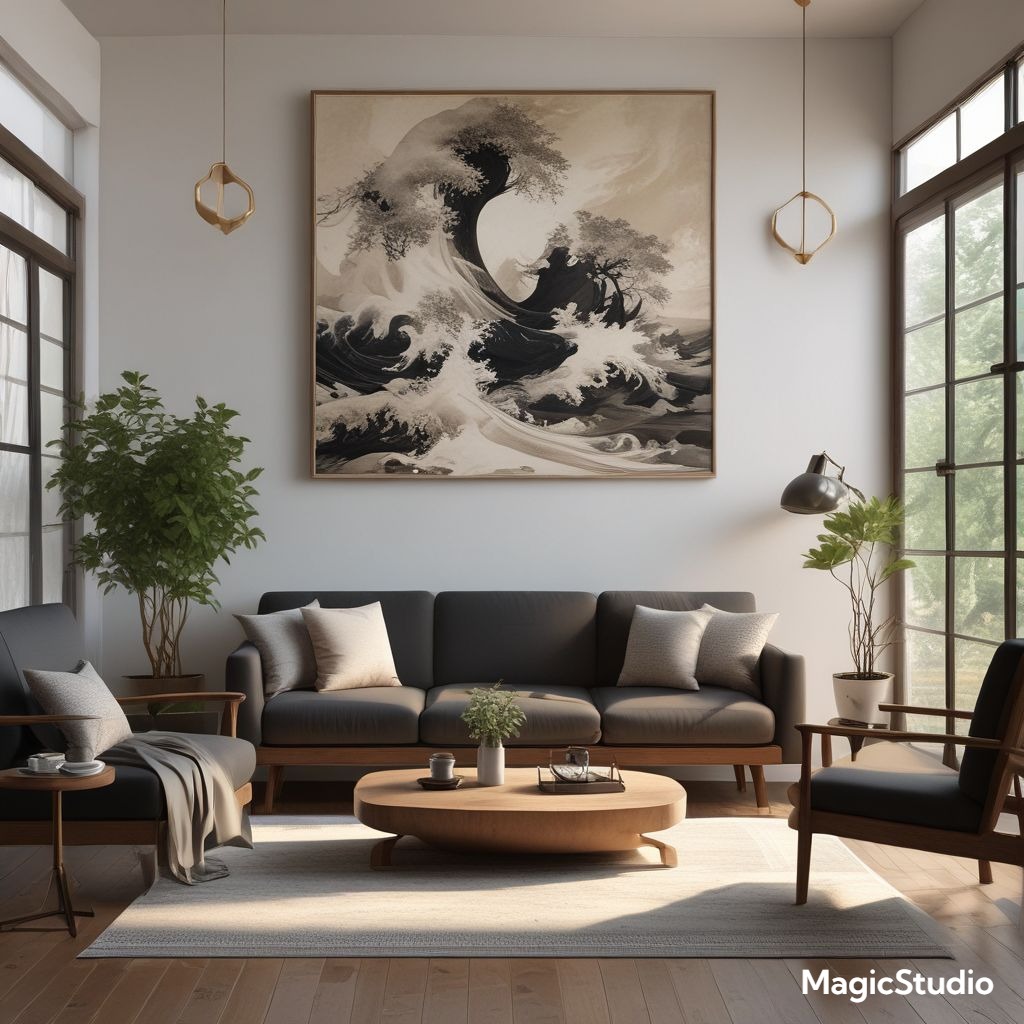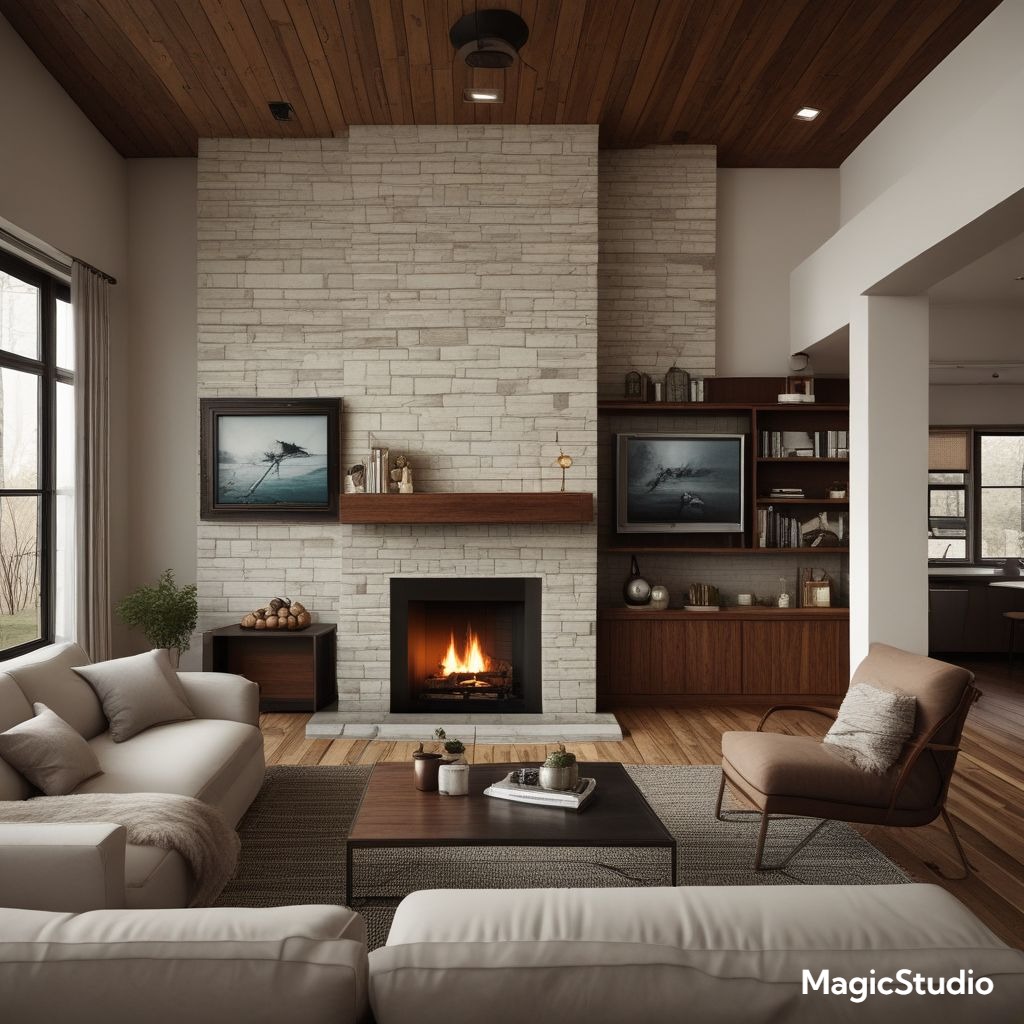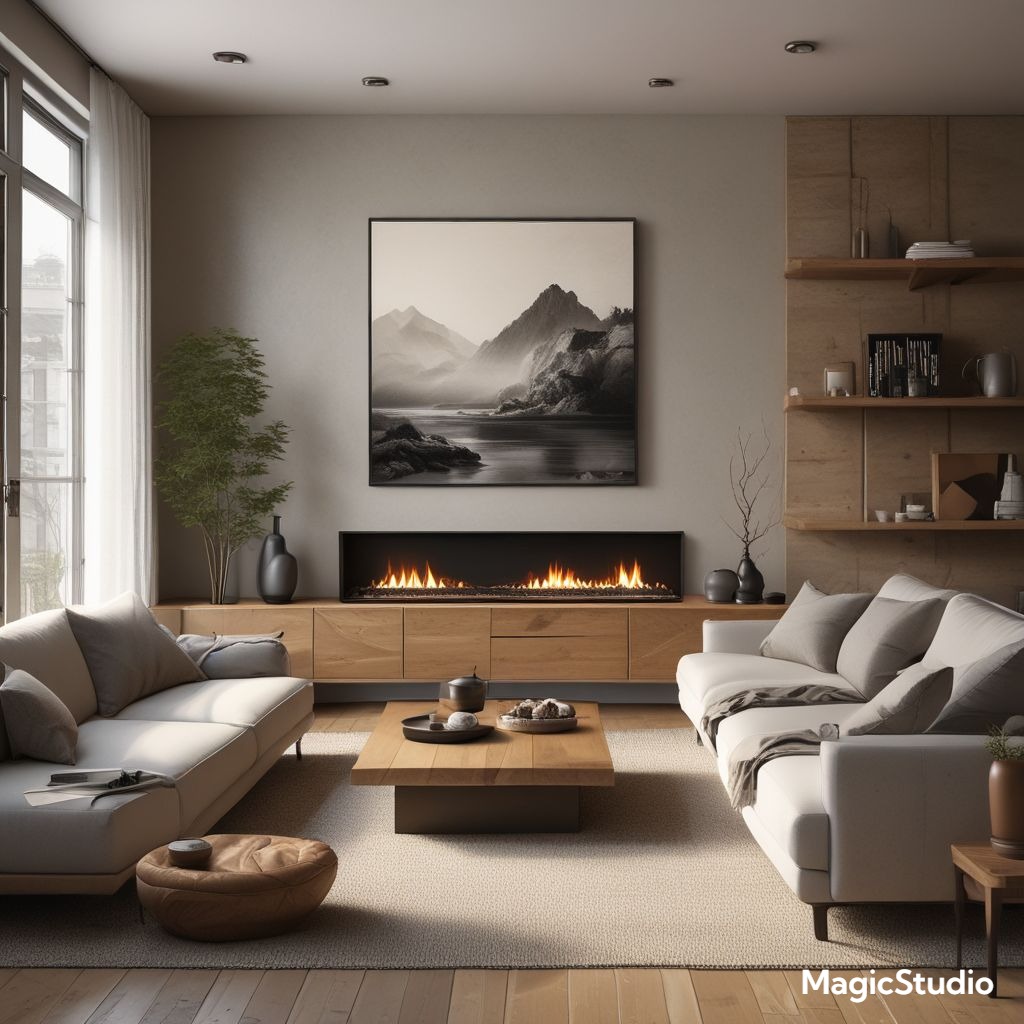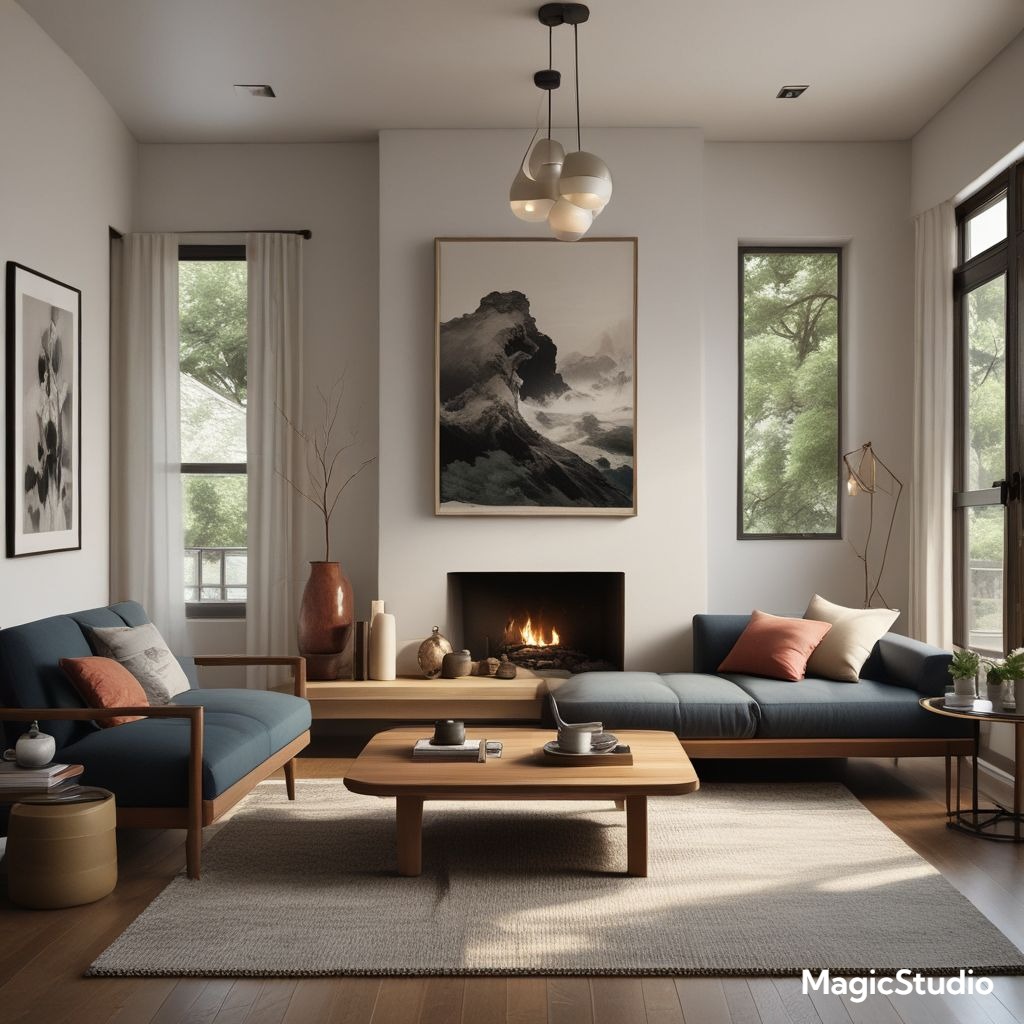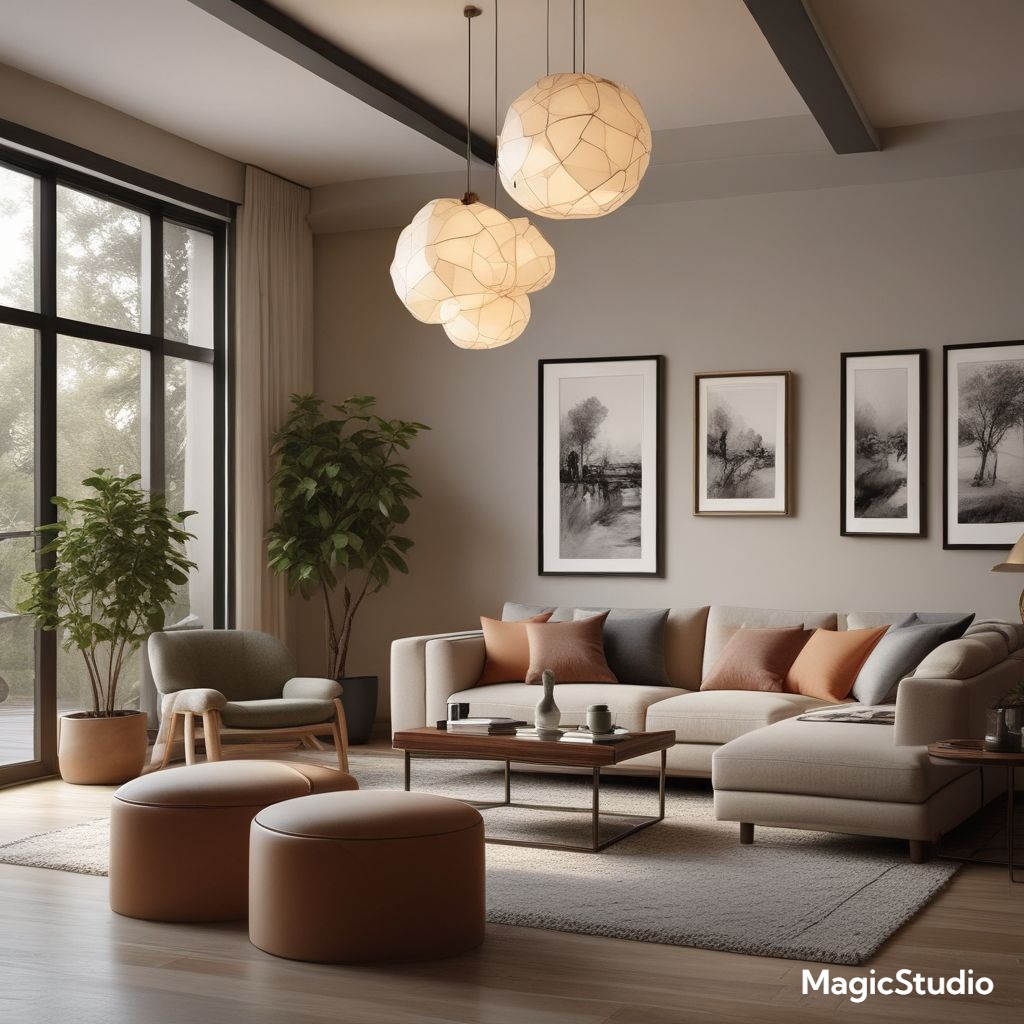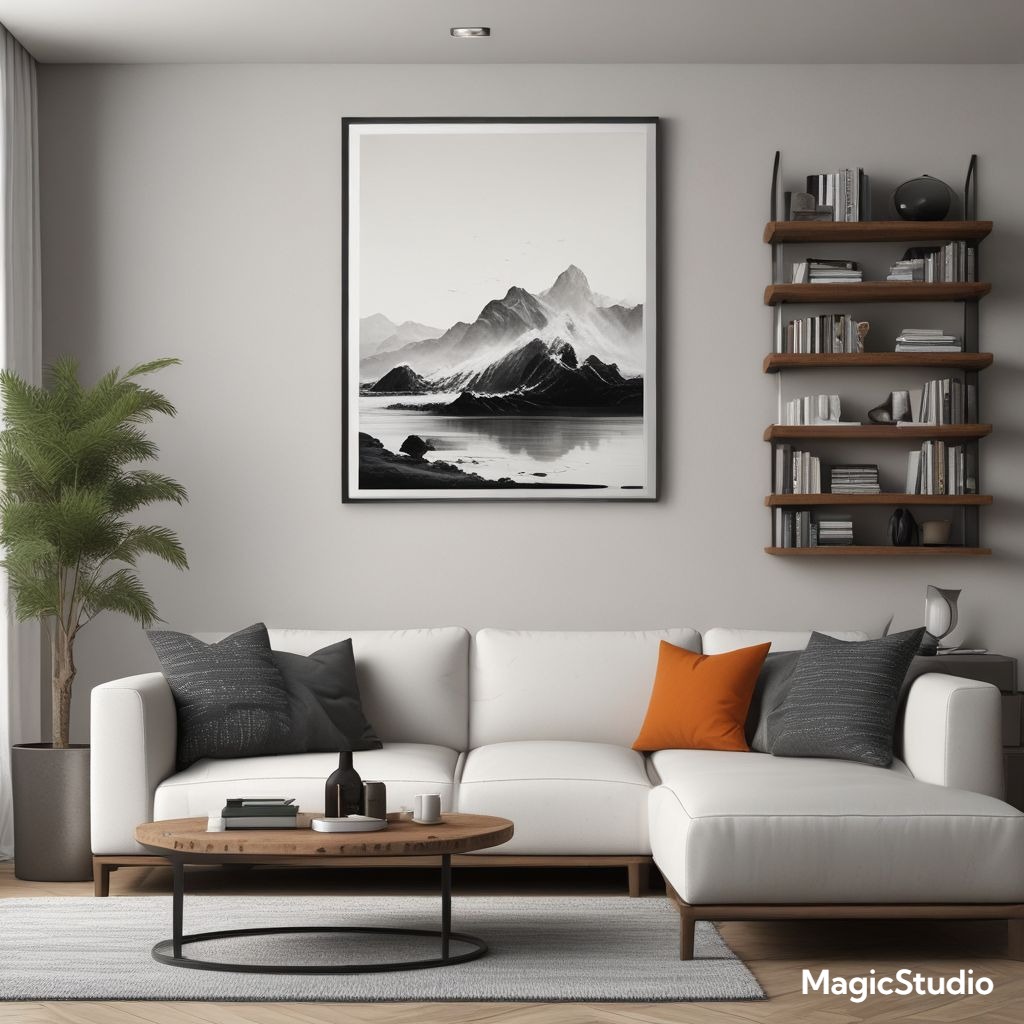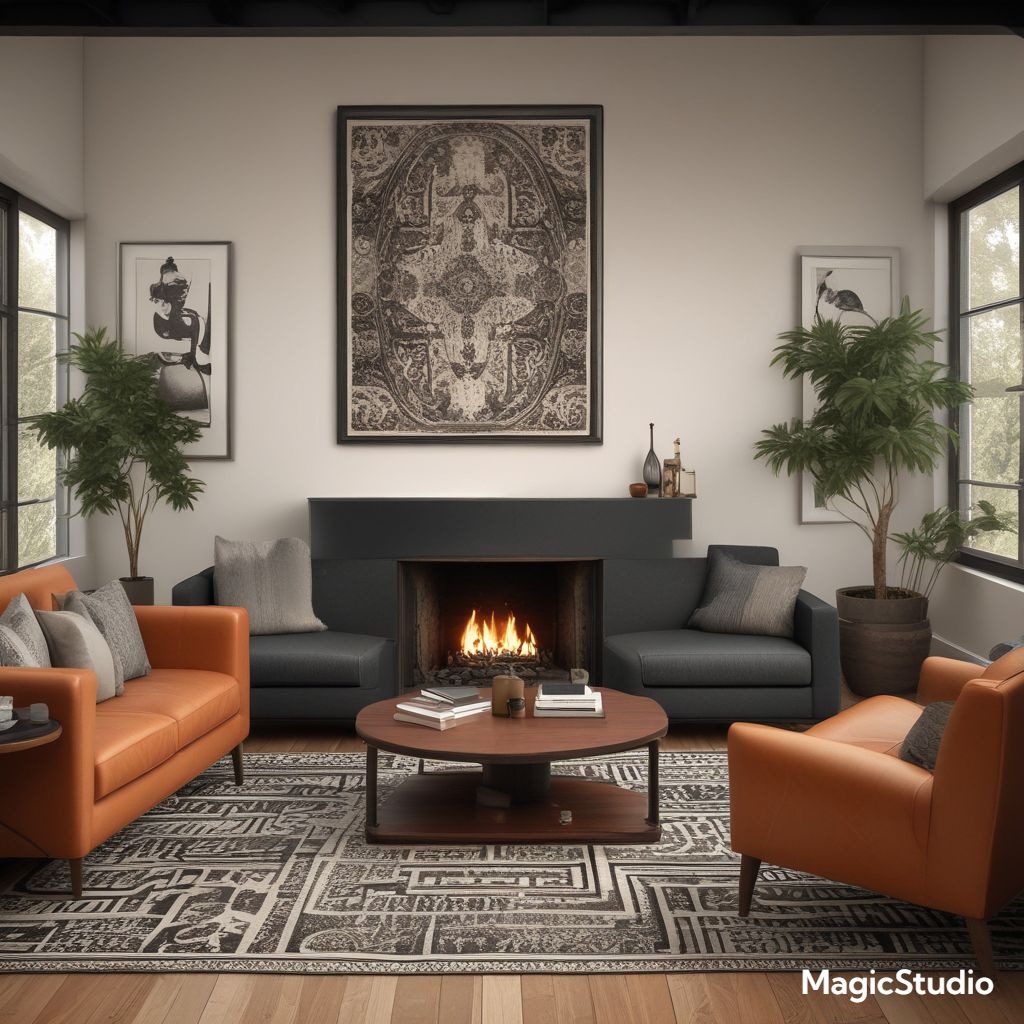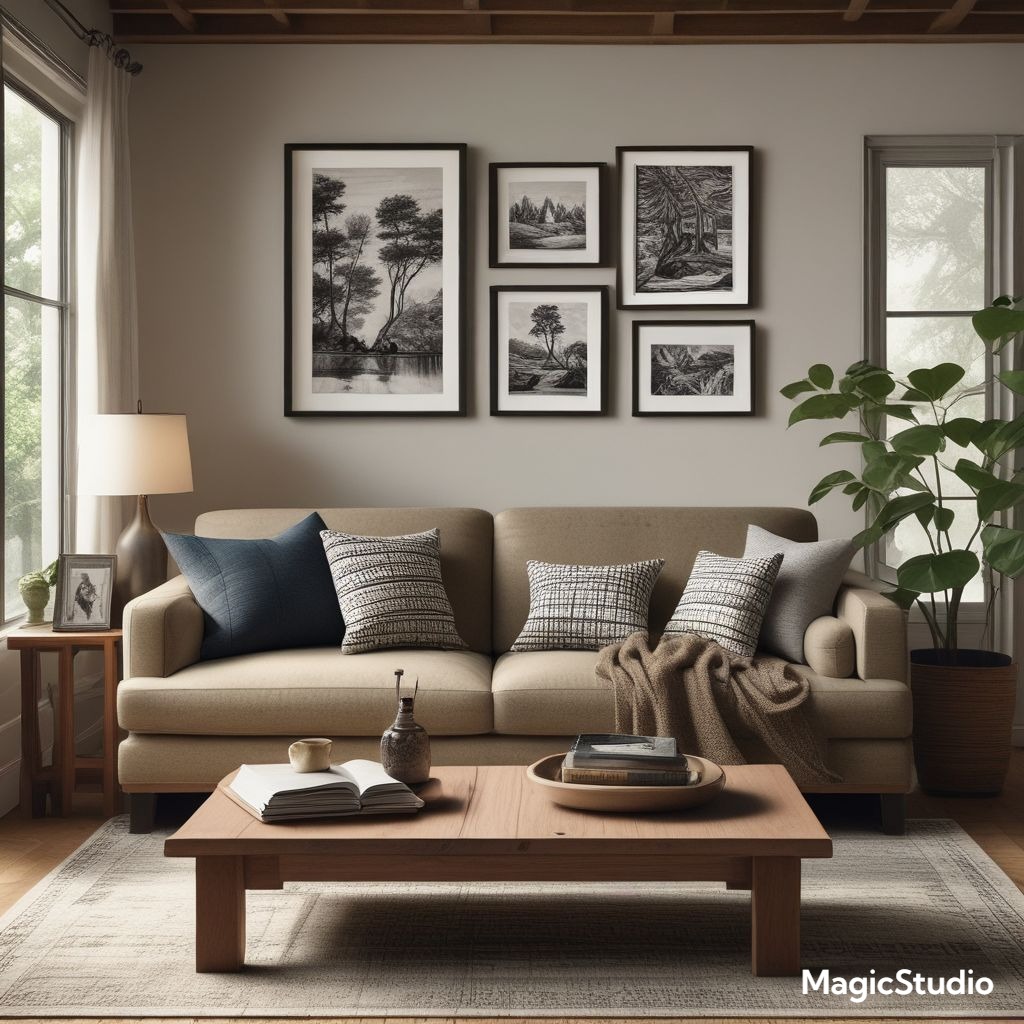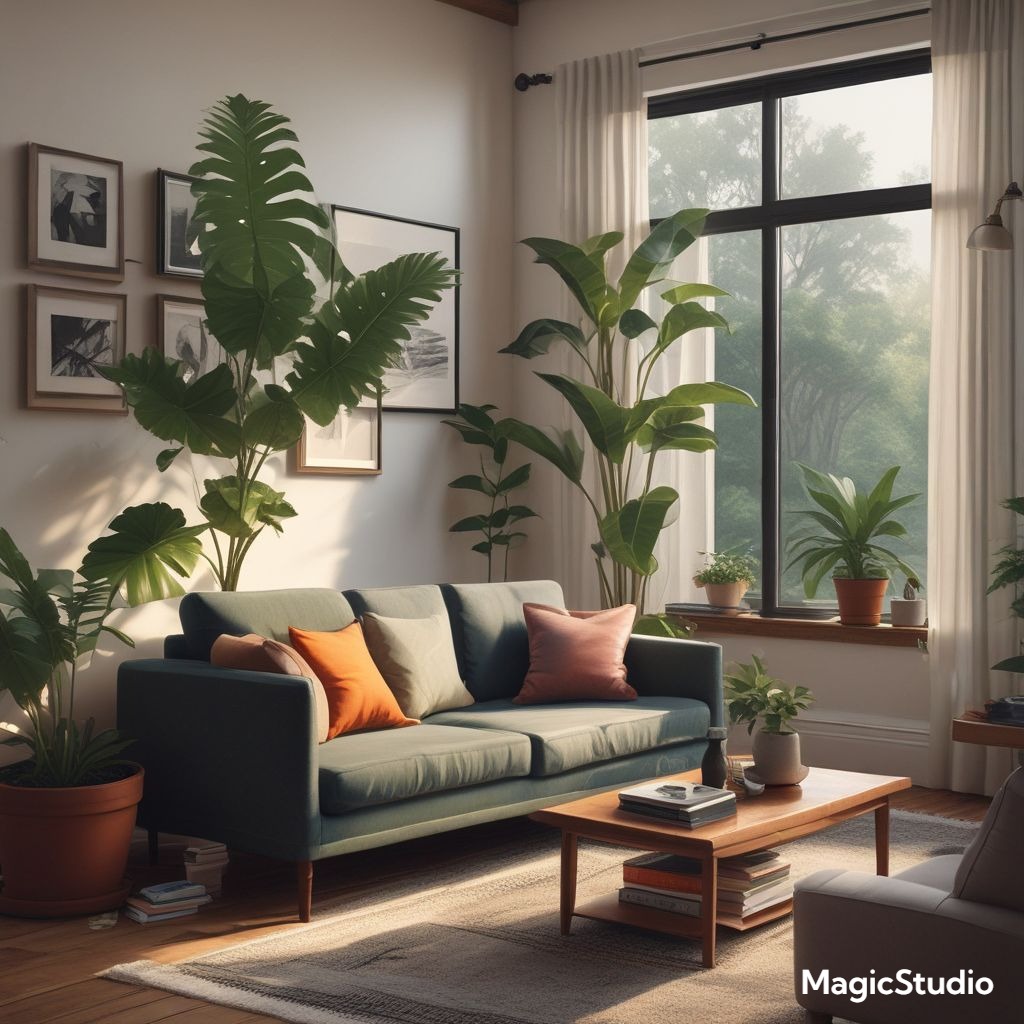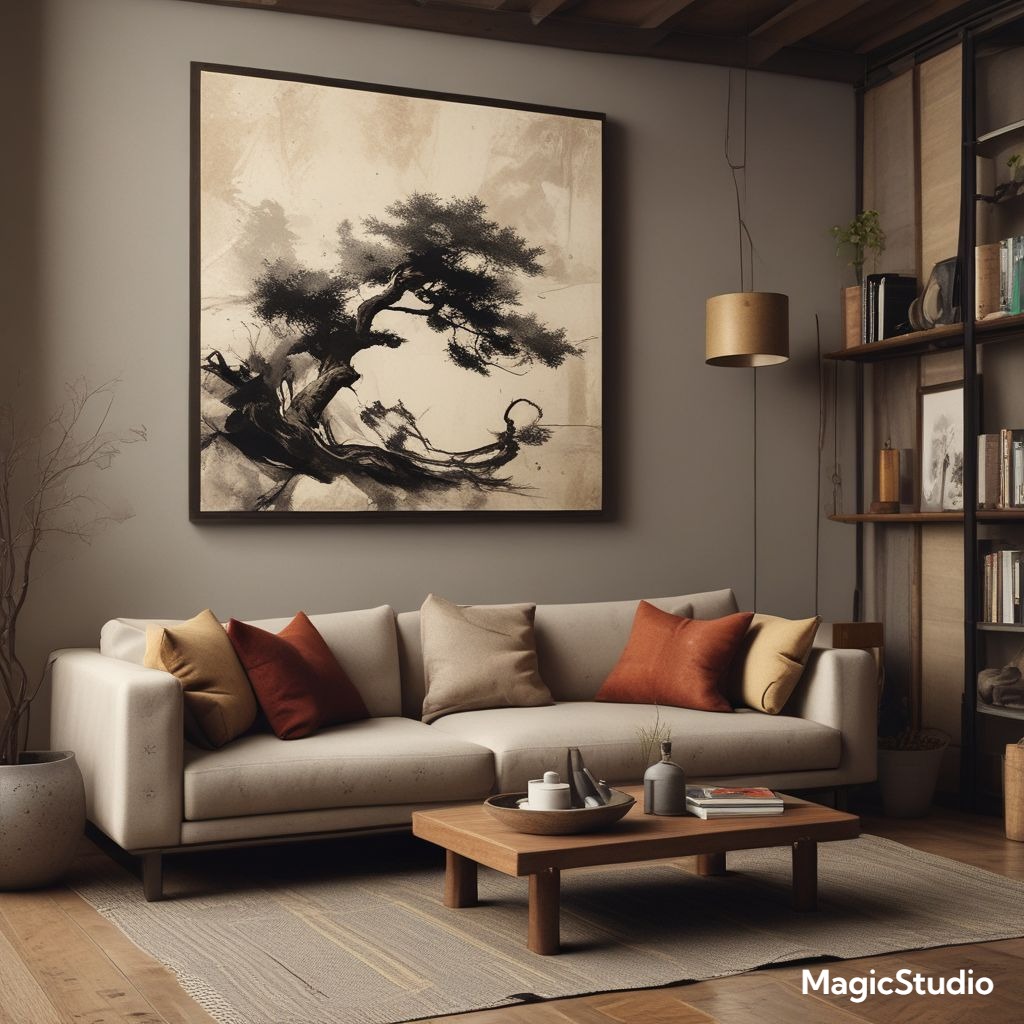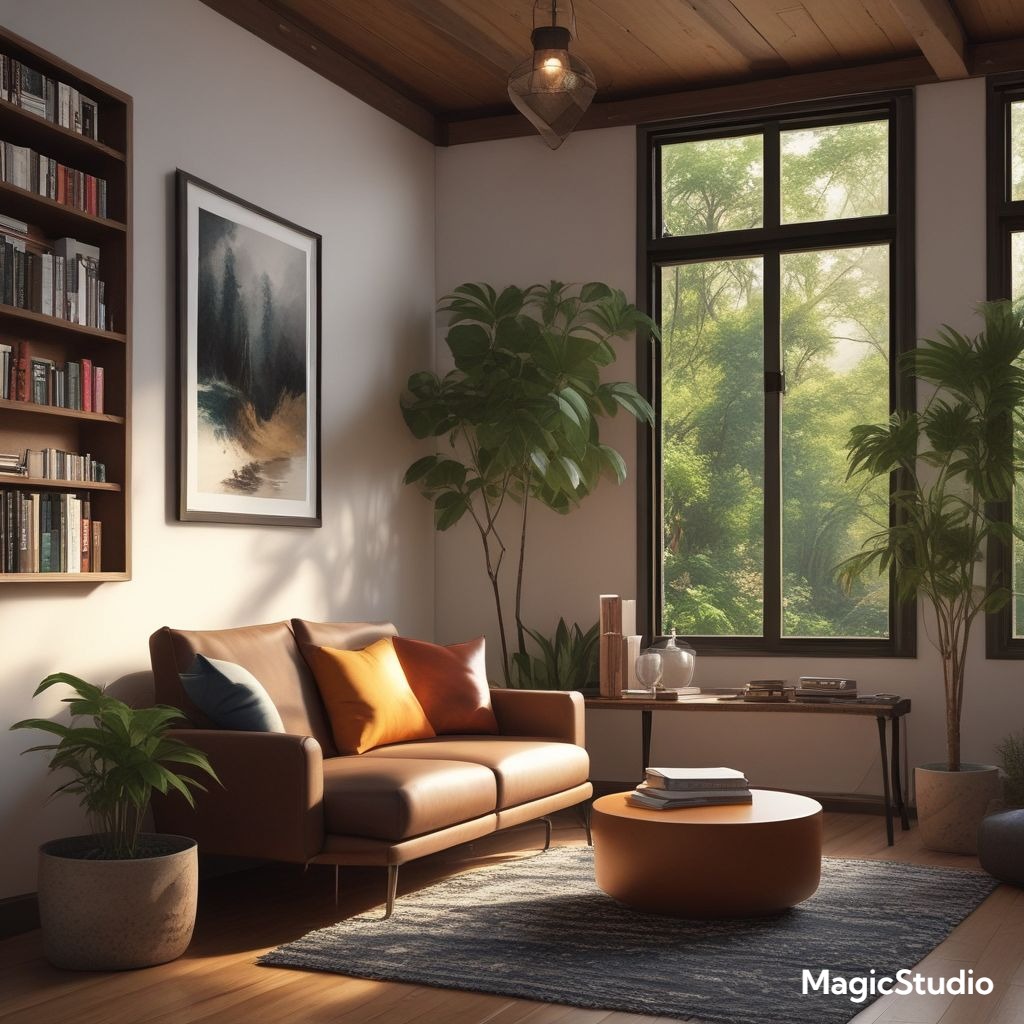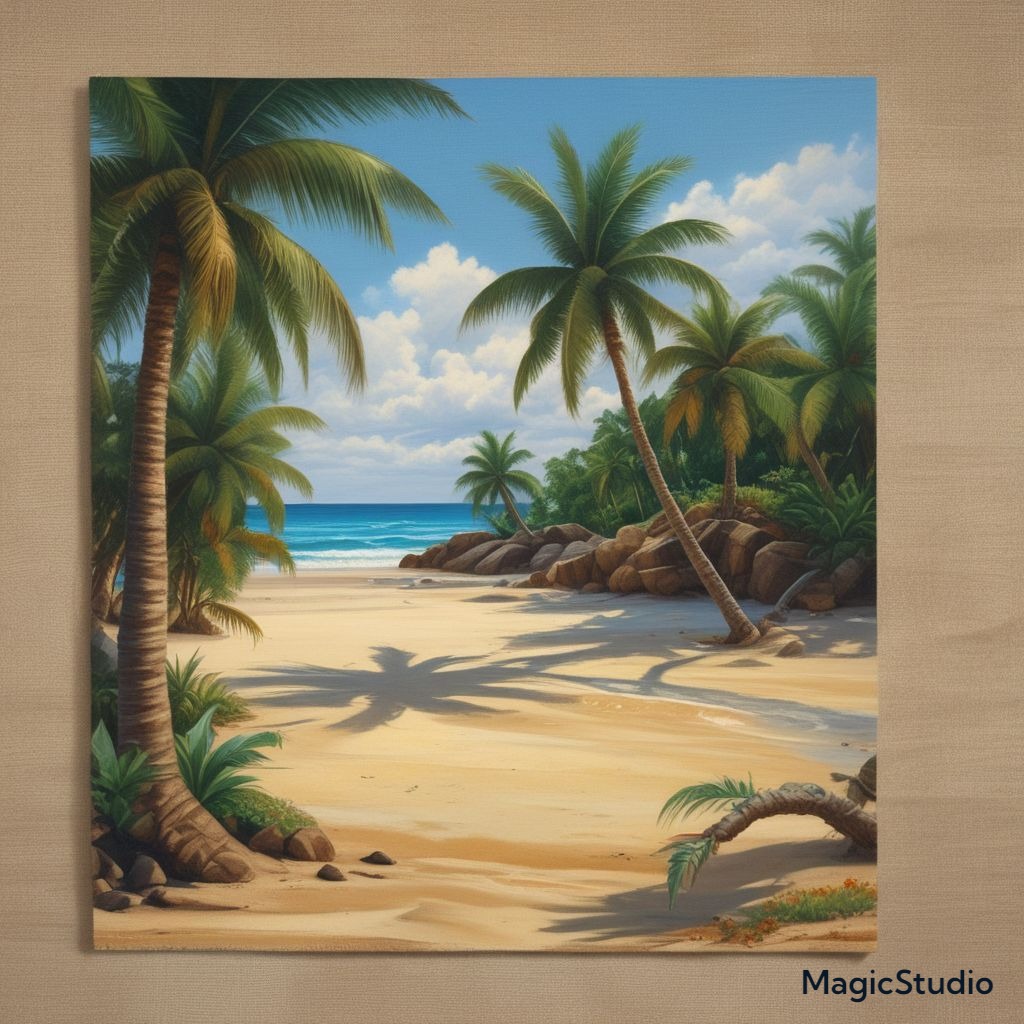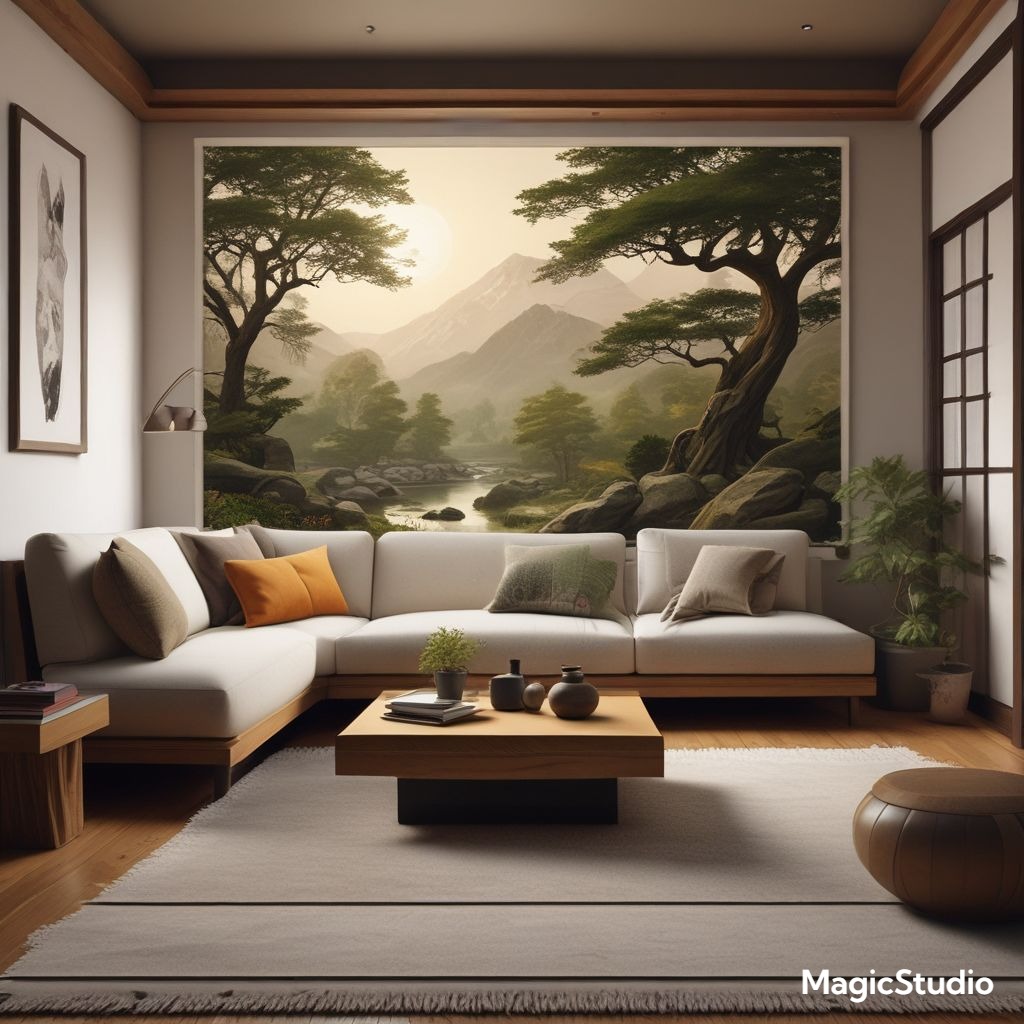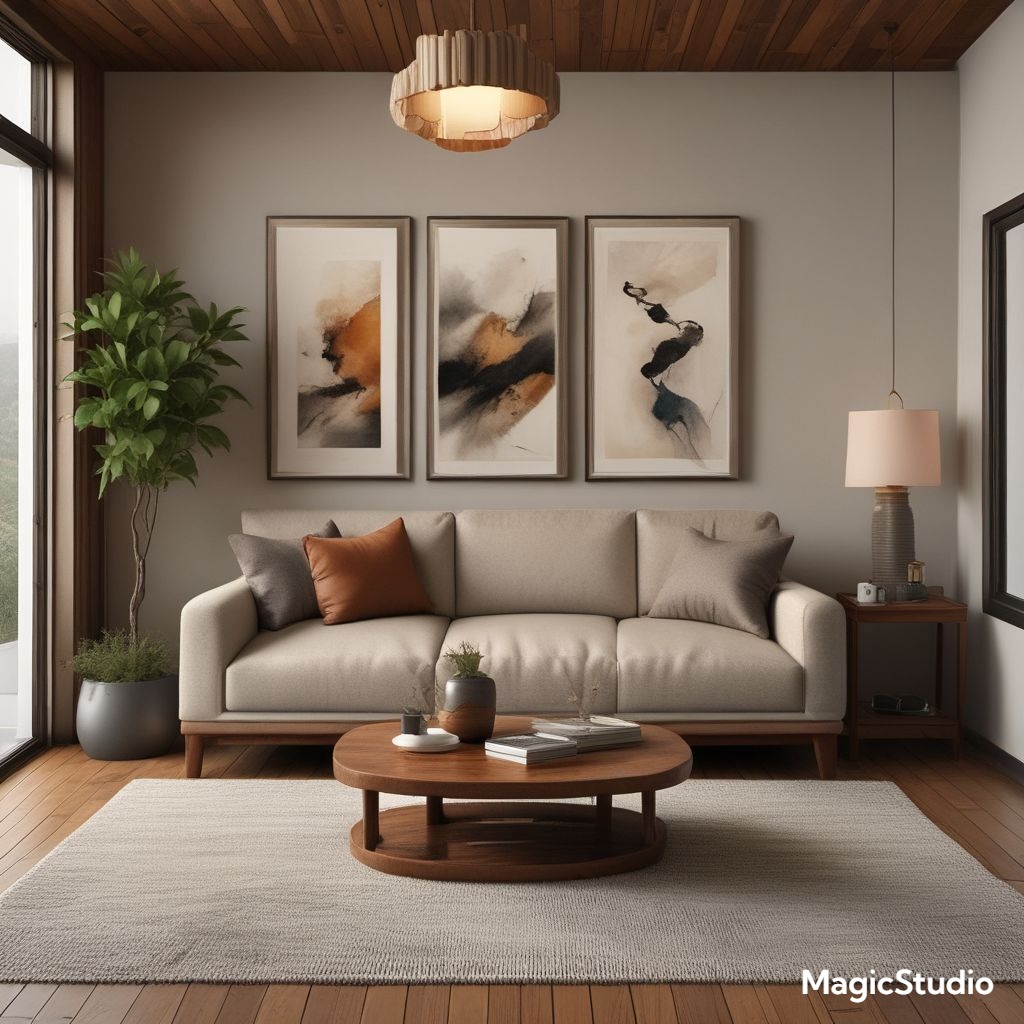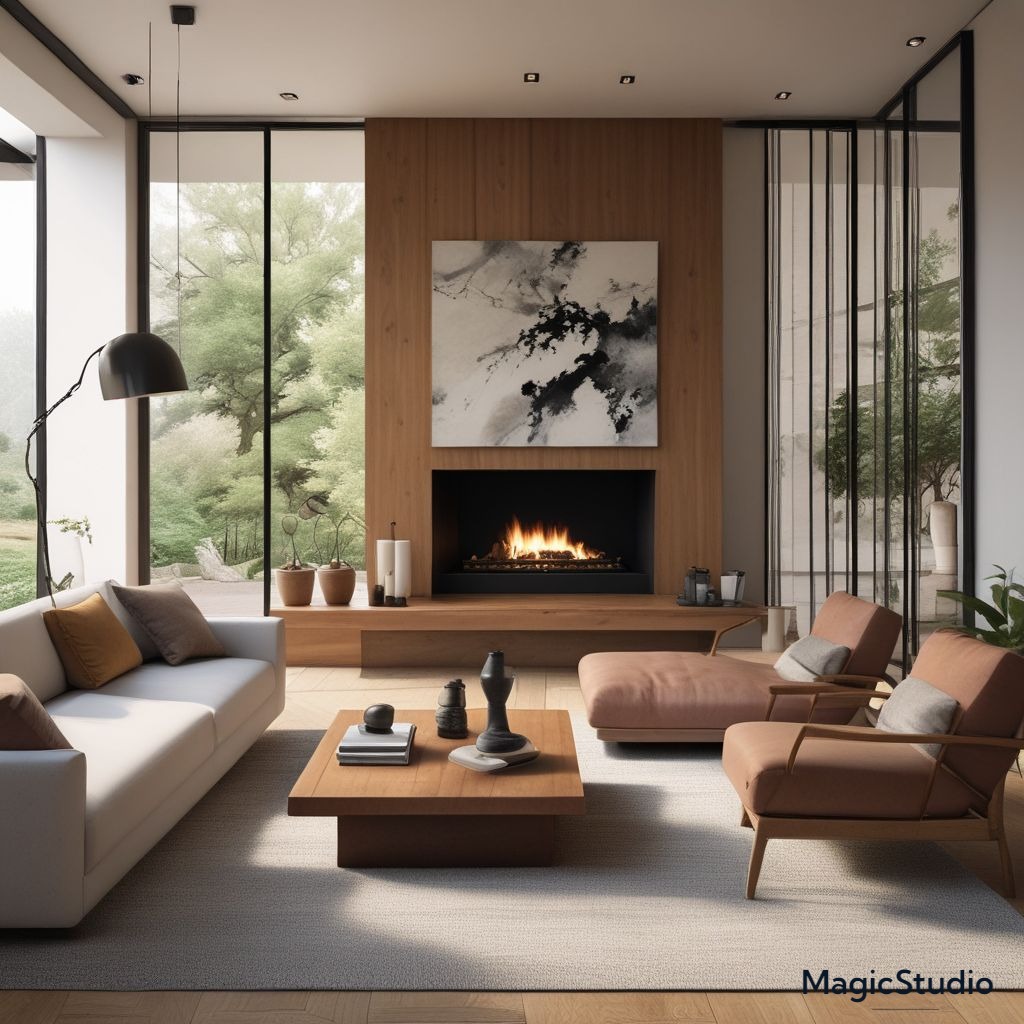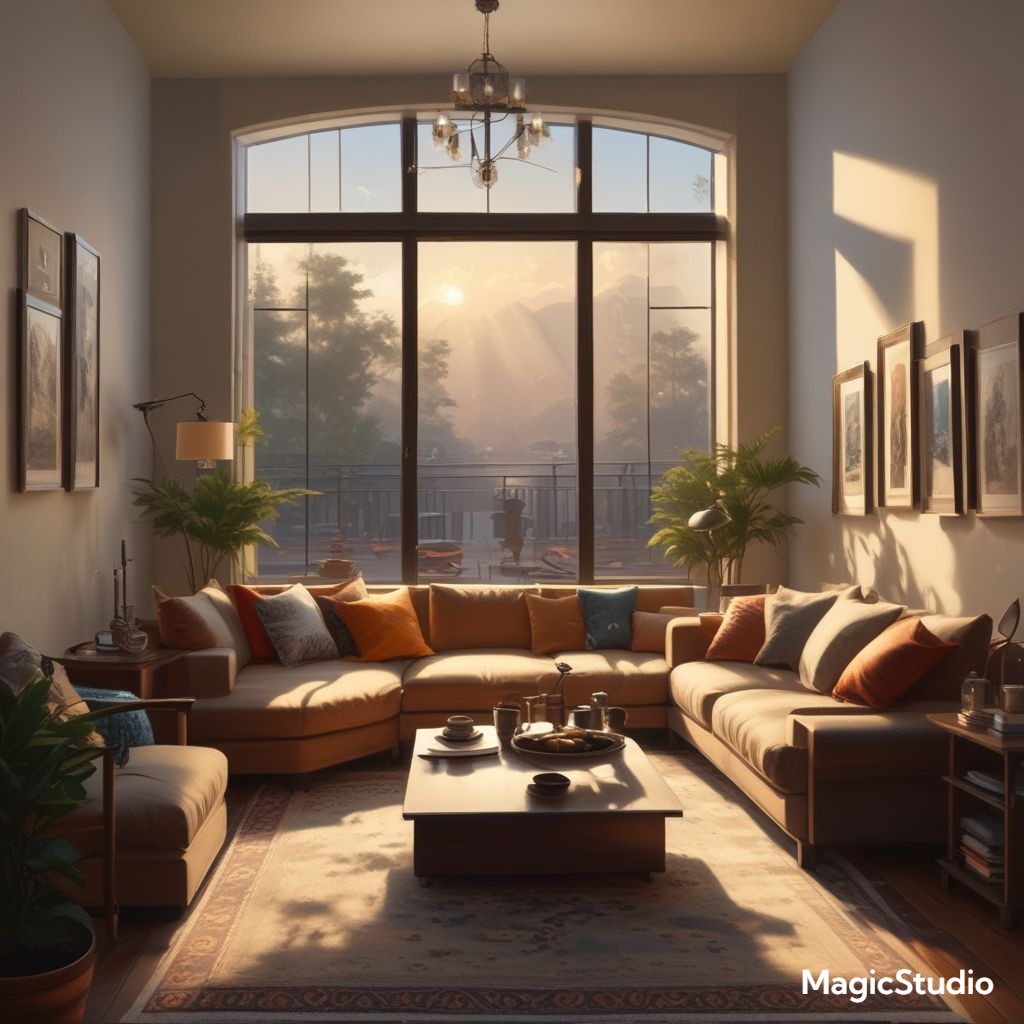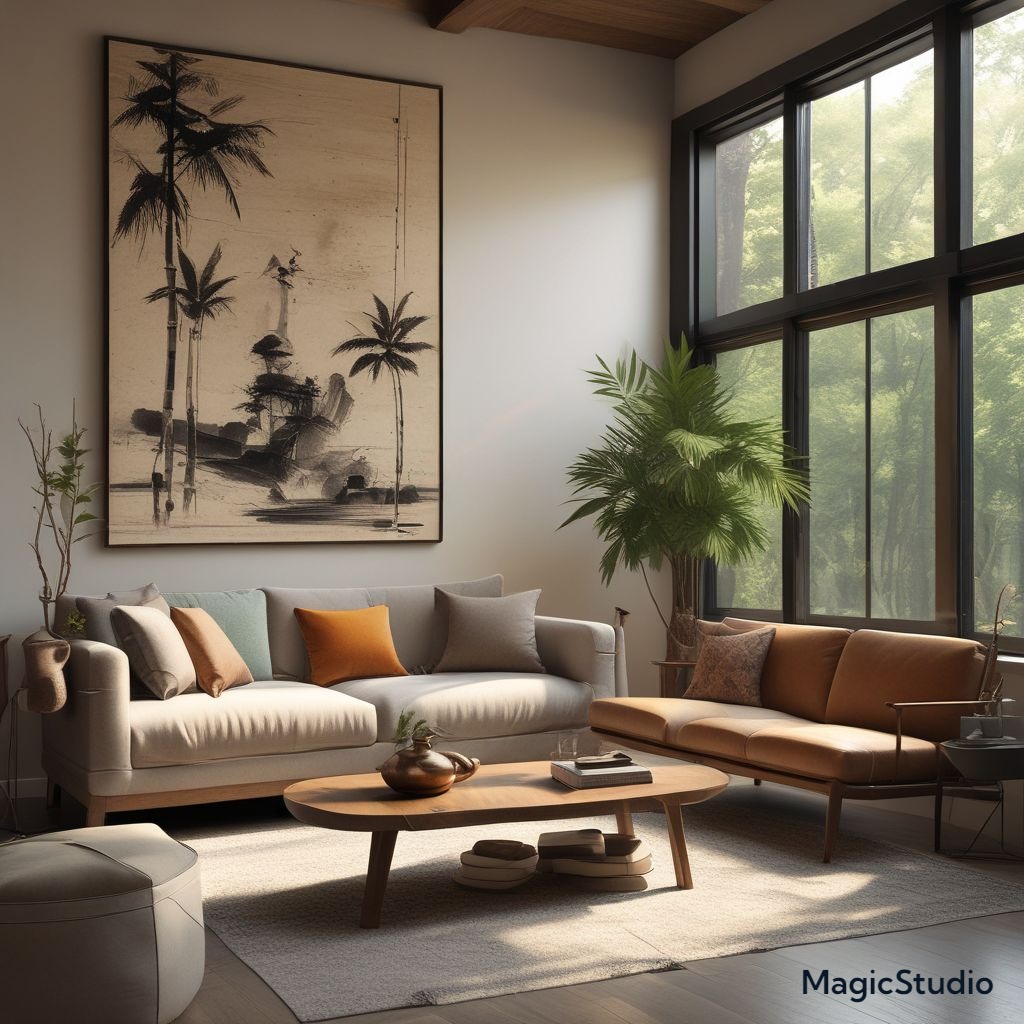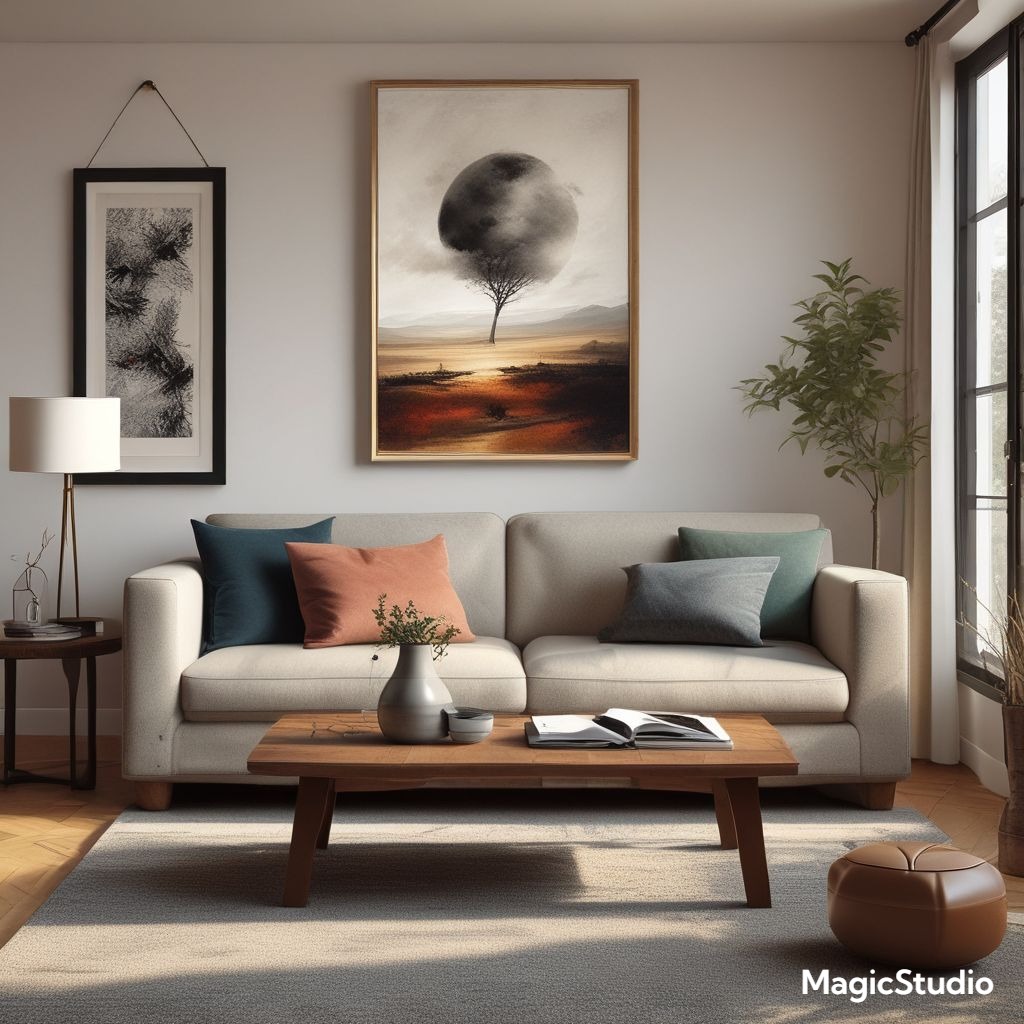The Japandi design style is a captivating blend of Japanese minimalism and Scandinavian functionality. This aesthetic offers a harmonious sanctuary for the modern home, characterized by clean lines, natural materials, and a serene color palette. It’s no wonder that Japandi living room decor is gaining immense popularity in both the US and EU, as people seek to create spaces that are both stylish and calming. This article will explore 18 captivating ideas to inspire your Japandi living room design, encompassing color combinations, furniture choices, and the latest trends.
Neutral Harmony with Pops of Color
Embrace the core essence of Japandi with a neutral color palette of creamy whites, warm grays, and soft beiges. This creates a serene foundation that allows you to introduce pops of color strategically. Consider incorporating vibrant accents like terracotta, indigo blue, or muted sage green through throw pillows, artwork, or a statement rug. This approach ensures a balanced aesthetic that’s both calming and visually engaging. In the US, muted terracotta accents are trending, while indigo blue remains popular in both regions.
Natural Materials and Textures
Japandi thrives on the use of natural materials like wood, bamboo, rattan, and linen. Incorporate these elements into your furniture, flooring, and accessories. A solid wood coffee table with a natural finish complements woven rattan chairs. Opt for a linen sofa with plush cushions for a soft and inviting feel. Natural textures not only enhance the aesthetic appeal but also contribute to a sense of warmth and comfort. The use of natural materials resonates deeply with both American and European design sensibilities.
Simplicity in Furniture
Furniture in a Japandi living room is characterized by its simplicity and functionality. Choose pieces with clean lines, minimal embellishments, and a focus on natural forms. A low-profile sofa with a streamlined design is a quintessential Japandi staple. Incorporate a wooden storage bench or a minimalist bookshelf to optimize space while adding visual interest. The trend in both the US and EU leans towards furniture pieces that emphasize practicality and a clutter-free look.
Sculptural Lighting
Lighting plays a crucial role in creating the desired ambience. Embrace sculptural lighting fixtures that add a touch of artistry to the space. A pendant light crafted from natural materials like bamboo or wood will complement the overall design. Table lamps with simple geometric shapes and a warm glow provide an inviting ambiance. When choosing lighting, consider the interplay of natural light and artificial light for a harmonious and balanced effect.
Minimalist Artwork
Japandi decor embraces minimalism in artwork as well. Choose pieces that feature simple lines, muted colors, and natural motifs. A minimalist abstract painting in shades of gray and beige creates a serene focal point. Consider incorporating traditional Japanese art prints like woodblock prints or calligraphy. Opt for artwork that evokes a sense of tranquility and harmony.
Statement Rug with Natural Patterns
A statement rug can ground the space and add visual interest. Choose a rug with a simple pattern, inspired by natural elements like geometric designs or organic shapes. Incorporate a rug with a subtle color palette, such as warm grays, beige, or muted greens. A statement rug serves as a focal point and complements the overall minimalist aesthetic. The trend in the US and EU favors statement rugs with natural textures and organic patterns.
Layered Textiles
Create depth and texture by layering different textiles. Throw blankets in natural fibers like wool or cotton add warmth and comfort. Incorporate cushions with geometric patterns or botanical prints to introduce visual interest. The use of different textures and patterns adds a sense of complexity and sophistication to the space. This trend is gaining popularity in both the US and EU as people embrace the art of layering for a more curated look.
Plant Life
Introduce elements of nature with plants. A few strategically placed plants can transform the space by adding a touch of freshness and life. Choose plants that thrive in indoor environments and complement the minimalist design aesthetic. Consider incorporating bonsai trees, ferns, or succulent arrangements. Plants bring a sense of tranquility and natural beauty to the space. Indoor plants remain a popular trend in both the US and EU, emphasizing the importance of bringing nature indoors.
Embrace the Wabi-Sabi Aesthetic
Wabi-Sabi is a Japanese philosophy that embraces imperfection and finding beauty in the natural aging process. Incorporate pieces with a patina or distressed finish to create a sense of authenticity and history. A vintage wood coffee table with a worn finish adds a unique touch. The Wabi-Sabi aesthetic adds a layer of depth and character to the space. This trend is gaining traction in both the US and EU as people seek to incorporate imperfections into their design for a more authentic feel.
Create a Reading Nook
Transform a corner of your living room into a cozy reading nook. Place a comfortable armchair, a floor lamp with soft lighting, and a small side table. Add a throw blanket and cushions for added comfort. This inviting space allows for relaxation and escape. The trend of creating dedicated reading nooks is growing in both the US and EU as people prioritize creating personalized spaces for relaxation and self-care.
Embrace the Concept of “Ma”
“Ma” is a Japanese concept that emphasizes the importance of negative space. Incorporate “Ma” into your design by creating visual breathing room. Avoid overcrowding the space with too many objects. Allow for ample space between furniture pieces. This creates a sense of calm and tranquility. The concept of “Ma” resonates strongly with the minimalist design aesthetic of both American and European design trends.
Zen Garden Inspired
Draw inspiration from traditional Japanese Zen gardens by creating a miniature garden in your living room. Use a tray or a shallow bowl to create a miniature landscape with rocks, sand, and small plants. This element adds a sense of tranquility and mindfulness to the space. The inspiration of Zen gardens is increasingly popular in Western design, emphasizing the importance of creating a peaceful and calming environment.
Warm Wood Accents
Incorporate warm wood accents to create a cozy and inviting atmosphere. A wooden coffee table with natural grains or a wooden bookshelf with a warm finish adds a touch of warmth and depth to the space. The warm tones of wood complement the overall neutral color palette. Warm wood accents remain a popular design choice in both the US and EU as they create a sense of warmth and comfort.
Use of Sliding Doors
Incorporate sliding doors or screens to create a sense of fluidity and openness. Use sliding doors to divide the living room from other spaces, creating a sense of separation while maintaining visual flow. The use of sliding doors is a popular trend in modern design, particularly in the US and EU, as they offer flexibility and style.
Embrace the Power of Light and Shadow
Japandi design emphasizes the interplay of light and shadow. Use natural light to illuminate the space and create a sense of depth. Incorporate strategically placed lamps and sconces to create soft and diffused lighting. The interplay of light and shadow adds a sense of drama and visual interest. This trend is growing in popularity in both regions as designers focus on creating a more nuanced and layered lighting experience.
Incorporate Bamboo Elements
Bamboo is a versatile material that adds a touch of natural beauty and texture to the space. Consider incorporating bamboo screens, light fixtures, or furniture pieces. Bamboo adds a unique and authentic Japanese feel to the space. The use of bamboo elements is increasingly popular in Western design, adding a touch of natural beauty and sustainability to the space.
Focus on Functionality
Japandi design emphasizes functionality and minimalism. Choose furniture pieces that serve multiple purposes and are designed to optimize space. A storage ottoman can double as seating and storage. A multi-functional coffee table can be used for dining and working. This approach emphasizes the importance of maximizing space while maintaining a clean and uncluttered aesthetic. This trend is gaining momentum in both regions as people prioritize practicality and efficiency in their living spaces.
